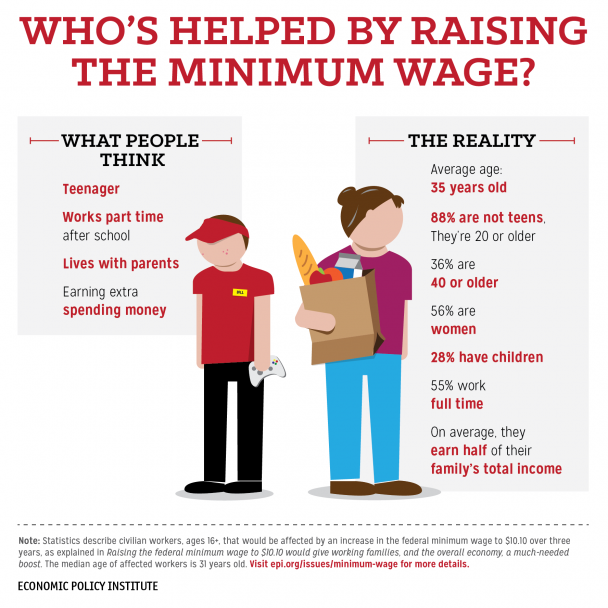 Few issues before Washington legislators in 2015 can match the overwhelming level of public support for increasing the minimum wage and ensuring every worker can earn paid sick days. Lawmakers will listen — if we speak loudly enough to be heard.
Few issues before Washington legislators in 2015 can match the overwhelming level of public support for increasing the minimum wage and ensuring every worker can earn paid sick days. Lawmakers will listen — if we speak loudly enough to be heard.
A recent statewide survey of 1,000 Washingtonians found over 64% of voters support increasing the minimum wage and believe that an increase in the minimum wage to $12 per hour would benefit the economy. And 74% of people recently polled across the country support requiring employers to provide paid sick leave for workers – including 84% of Democrats, 69% of Republicans, and 68% of independents.
Rep. Jessyn Farrell (D-Seattle) is the lead sponsor of House Bill 1355, which would increase the state minimum wage to $12/hour over the next four years. Rep. Farrell states, “Income inequality is as bad as it has been since my grandmother was a small girl in 1929. While raising the minimum wage is not a silver bullet in fighting income inequality, it is an important step.”
House Bill 1356 would require most business owners to ensure workers can earn up to 5 paid sick days per year. Lead sponsor Rep. Laurie Jinkins (D-Tacoma) explains why: “Getting sick shouldn’t mean getting fired. You shouldn’t have to choose whether or not to stay home with a sick kid or put food on the table for your family at the end of the week. But that’s what’s happening today. It’s past time we give all workers the dignity and respect they and their families deserve.”
Workers know that without the basic protections of a fair wage and the ability to stay at home when ill, the chances of ever building economic security are depressingly slim.
Over one million Washington workers lack paid sick days – that means workers have to go to work sick, risking their own health and the health of their co-workers and customers. Without paid sick days, many parents end up having to send sick kids to school, which risks spreading infection to classmates and teachers. Research shows that children who aren’t allowed to stay home to heal don’t do as well in school as children who are able to stay home with a caregiver when they are sick.
And working full time at the current state minimum wage of $9.47/hour isn’t enough for anyone to make ends meet. It takes a full-time job paying $12.48/hour to afford even a studio apartment in our state.
All this is happening during a time of record corporate profits — and make no mistake, large businesses are where you’ll find most minimum wage workers. The majority (66 percent) of low-wage workers are not employed by small businesses, but rather by large corporations with over 100 employees.
Nationwide, the 50 largest employers of low-wage workers have largely recovered from the recession and most are in strong financial positions: 92 percent were profitable last year; 78 percent have been profitable for the last three years; 75 percent have higher revenues now than before the recession; 73 percent have higher cash holdings; and 63 percent have higher operating margins (a measure of profitability).
So if the path forward for Washington voters is so broadly supported — both by voters, and by economic reality — what’s standing in our way? Put simply, corporate leaders have successfully lobbied their interests, while the voices of regular working people have been drowned out. There is perhaps no greater threat to democracy than the influence that money has in our political system.
The truth is, we are better off when we work together and invest in our communities – and the bills to raise the minimum wage and require businesses to provide paid sick days do just that. Washington voters want and deserve an economy that isn’t hijacked by the influences of corporate power. They are calling on our elected representatives to advance the will of the people, towards an economy that works for all of us, not just the wealthiest few.
It’s We the People – not We the Corporations – who deserve to be heard.
By Sam Hatzenbeler, MPHc
More To Read
April 17, 2024
2023-24 Impact and Gratitude Report
Reflecting on a year of progress and transition at EOI
April 12, 2024
Welcoming our New Executive Director, Rian Watt!
EOI is excited to begin its next chapter under new leadership
April 4, 2024
Is There a Valid Argument Against Cost-Free College in Washington?
Cost-free college is a meaningful investment that would change lives. What's stopping Washington from making it happen?

